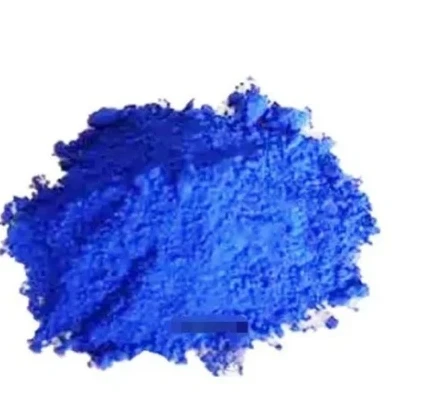Warning: Undefined array key "title" in /home/www/wwwroot/HTML/www.exportstart.com/wp-content/themes/1198/header.php on line 6
Warning: Undefined array key "file" in /home/www/wwwroot/HTML/www.exportstart.com/wp-content/themes/1198/header.php on line 7
Warning: Undefined array key "title" in /home/www/wwwroot/HTML/www.exportstart.com/wp-content/themes/1198/header.php on line 7
Warning: Undefined array key "title" in /home/www/wwwroot/HTML/www.exportstart.com/wp-content/themes/1198/header.php on line 7
- Afrikaans
- Albanian
- Amharic
- Arabic
- Armenian
- Azerbaijani
- Basque
- Belarusian
- Bengali
- Bosnian
- Bulgarian
- Catalan
- Cebuano
- China
- China (Taiwan)
- Corsican
- Croatian
- Czech
- Danish
- Dutch
- English
- Esperanto
- Estonian
- Finnish
- French
- Frisian
- Galician
- Georgian
- German
- Greek
- Gujarati
- Haitian Creole
- hausa
- hawaiian
- Hebrew
- Hindi
- Miao
- Hungarian
- Icelandic
- igbo
- Indonesian
- irish
- Italian
- Japanese
- Javanese
- Kannada
- kazakh
- Khmer
- Rwandese
- Korean
- Kurdish
- Kyrgyz
- Lao
- Latin
- Latvian
- Lithuanian
- Luxembourgish
- Macedonian
- Malgashi
- Malay
- Malayalam
- Maltese
- Maori
- Marathi
- Mongolian
- Myanmar
- Nepali
- Norwegian
- Norwegian
- Occitan
- Pashto
- Persian
- Polish
- Portuguese
- Punjabi
- Romanian
- Russian
- Samoan
- Scottish Gaelic
- Serbian
- Sesotho
- Shona
- Sindhi
- Sinhala
- Slovak
- Slovenian
- Somali
- Spanish
- Sundanese
- Swahili
- Swedish
- Tagalog
- Tajik
- Tamil
- Tatar
- Telugu
- Thai
- Turkish
- Turkmen
- Ukrainian
- Urdu
- Uighur
- Uzbek
- Vietnamese
- Welsh
- Bantu
- Yiddish
- Yoruba
- Zulu
Sep . 05, 2024 03:47 Back to list
Aspartame Products - Sweet Solutions for Every Palette
The Role of Aspartame in Sugar-Free Products A Comprehensive Overview
Aspartame, an artificial sweetener, has become a staple ingredient in many sugar-free and low-calorie food products since its approval by the U.S. Food and Drug Administration (FDA) in 1981. With its sweetness estimated to be about 200 times that of sucrose (table sugar), aspartame is favored by food manufacturers for its ability to provide sweetness without the calories associated with sugar. This article delves into the significance of aspartame in various products, its benefits, controversies, and potential side effects.
Aspartame in Sugar-Free Products
Aspartame is predominantly found in a myriad of sugar-free products, including soft drinks, chewing gum, desserts, and even some medications. The rise of health-conscious consumers has driven increased demand for low-calorie alternatives to traditional sugary products. As the global obesity epidemic continues to be a pressing public health concern, aspartame offers a solution by allowing individuals to enjoy sweet flavors while reducing caloric intake.
One of the most recognized applications of aspartame is in diet sodas, where its high sweetness intensity allows for minimal use in formulations, effectively cutting down on calories. Brands like Diet Coke and Pepsi Zero Sugar utilize aspartame to provide consumers with a guilt-free indulgence in sweet carbonated beverages. Additionally, aspartame is often used in sugar-free chewing gum, yogurt, and even certain sugar-free candies, making it a versatile ingredient across the food industry.
Benefits of Aspartame
Aspartame's primary benefit lies in its caloric reduction properties. For individuals looking to manage their weight or lower their sugar intake for medical reasons, such as diabetes, aspartame provides a way to enjoy sweet flavors without the calorie burden of sugar. Furthermore, it does not affect blood sugar levels, making it a popular choice for those monitoring their carbohydrate intake.
aspartame products

Moreover, aspartame is generally recognized as safe (GRAS) by regulatory bodies such as the FDA and the European Food Safety Authority (EFSA). Multiple studies have concluded that when consumed within established daily intake levels, aspartame poses negligible risk to healthy individuals.
Controversies and Concerns
Despite its widespread use, aspartame has faced significant controversy over the years. Some studies have suggested links between aspartame consumption and various health issues, including headaches and allergic reactions. However, comprehensive reviews by scientific organizations have typically found no conclusive evidence supporting these claims when aspartame is consumed within recommended guidelines.
Additionally, individuals with a rare genetic disorder known as phenylketonuria (PKU) must avoid aspartame, as it contains phenylalanine, an amino acid that could accumulate to dangerous levels in their bodies.
Conclusion
Aspartame stands as a critical ingredient in the formulation of sugar-free products, offering both sweetness and a means to reduce caloric intake. While it is deemed safe for the majority of the population, ongoing debates surrounding its health impacts highlight the importance of further research and consumer awareness. As with all additives, moderation remains key, and individuals are encouraged to make informed choices based on their dietary needs and preferences. As the landscape of sugar-free products continues to evolve, the role of aspartame is likely to remain significant, catering to the demands of health-conscious consumers.
Latest news
-
Certifications for Vegetarian and Xanthan Gum Vegetarian
NewsJun.17,2025
-
Sustainability Trends Reshaping the SLES N70 Market
NewsJun.17,2025
-
Propylene Glycol Use in Vaccines: Balancing Function and Perception
NewsJun.17,2025
-
Petroleum Jelly in Skincare: Balancing Benefits and Backlash
NewsJun.17,2025
-
Energy Price Volatility and Ripple Effect on Caprolactam Markets
NewsJun.17,2025
-
Spectroscopic Techniques for Adipic Acid Molecular Weight
NewsJun.17,2025

